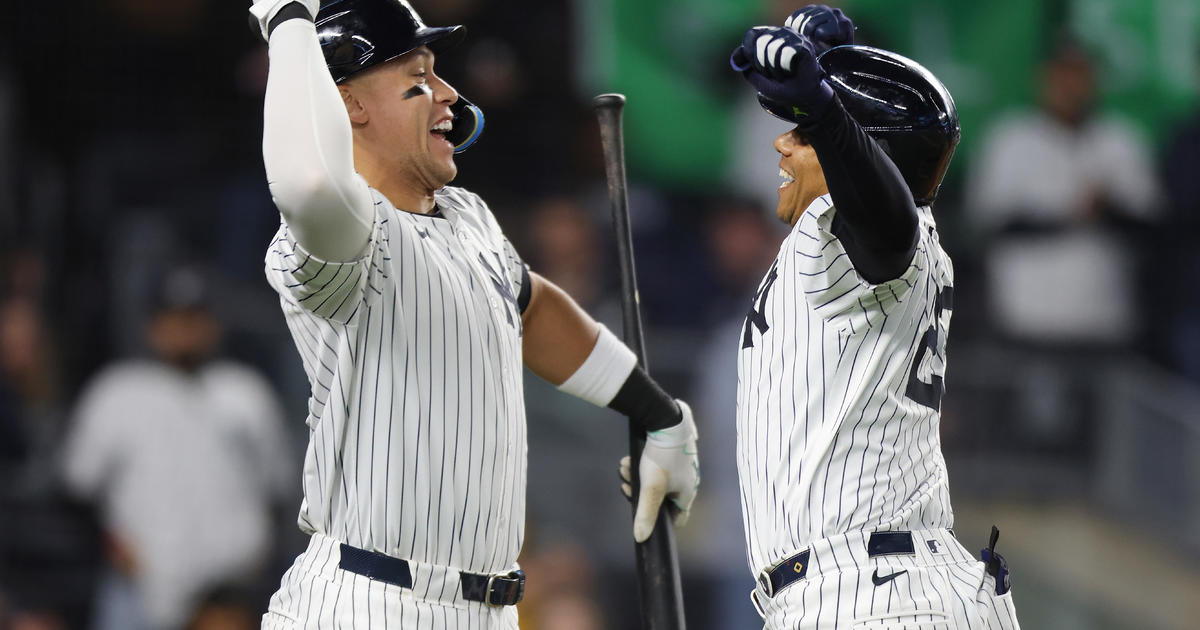By The Numbers: The Economics Of Baseball
By Father Gabe Costa
» More Columns
Former guest blogger Ray Aumack shares his views on economics and baseball.
Enjoy!
The Economics of Baseball
The economics of baseball means different things to different people. To a baseball owner, it means the many income streams and expenses that can fund the organization's ability to put a good product on the field and generate a profit for the owners. To the average baseball fan, the issue is whether or not they can afford to bring their children or grandchildren to a major league baseball game.
People will buy tickets to watch a good game, played by gifted athletes at a reasonable price. That is part of the conflict. Good players are expensive. The price of a ticket has become unreasonable from the perspective of the average fan, many of whom cannot realistically afford a ticket. For me to bring two children to a baseball game at Yankee Stadium, the total cost would be over one hundred dollars with everything included. For some, this would be chump change. For others, entertainment on this level cuts into the mortgage, rent, food, or medication budget. An expenditure such as this for most people requires careful consideration.
Gone are days of seeing the Yankee Stadium stands filled with unemployed depression era men, dressed in double breasted suits and wearing fedora hats, cheering for their heroes. They came to the stadium to escape the misery of the depression and somehow, they could afford it. Tickets were about $1.00 in the late 1920s and 30s. In fact, it is a tribute to the Yankees and major league baseball that they contributed so much to relieve the awful anguish of the period. It was a vastly different experience for the many unemployed during this past recession.
A baseball game used to be a great dating venue. Ladies Days, free entrance for women, was introduced in 1883 and was part of major league teams' marketing plans in the 1950s. The incentive was offered until the 1980s. Now it is less expensive to bring your favorite date to a first class restaurant. However, a baseball game is still in play for those who can afford it.
It was also a great outing for a family with young children to introduce them to the excitement, the art, and socialization of the game.
A look first at the economic issues of the average owner
The first is the location of the organization. New York is considered a large market, actually baseball's largest market, with about 27 million people living within travelling distance to the two major league stadiums. New York is also the functioning business capital of the world. When the new stadiums were built, they were built with revenues from corporate boxes in mind. In fact, many of the seats in Yankee Stadium are tickets purchased by corporations.
We have all seen on TV games that are played in virtually empty stadiums. I think primarily of the Florida teams, Kansas City, and Baltimore. They survive only with extraordinary management. The Florida clubs produce a winner every three to five years, trade the players for big dollars, and start over again to build another winning team. Kansas City and Baltimore have not won anything in quite a while.
On face value, one would expect the Florida stadiums to be filled. The population is large enough and their product is usually good. However, a good number of that population is elderly and do not like to come out in the evening, do not like to wrestle their way though traffic and crowds, and would rather not sit in the heat and uncomfortable seats of the average stadium. They are also living on fixed budgets and the investment in an evening of baseball might not be worth it to them. In fact, it is not an investment at all but rather a mindless expenditure that cannot be justified and quite likely should not be made.
A brief history of baseball finances
Major league baseball had its beginnings with the founding of the New York Knickerbockers Base Ball Club in 1842. This was an amateur team playing against other amateur teams. By 1845 the Knickerbockers were faced with having to pay rent for the Elysian Fields of Hoboken and that rent was covered by dues paid by the players. In order to keep really good players on the team, a select few were paid something "under the table."
It is not enough to think of revenue as the number of tickets sold to see a live game. Television, radio, and print media are also a significant factor. I remember the days of my youth when the whole family sat in the living room to listen to Mel Allen and Curt Gowdy describe the activity of a game on our "Grundig Majestic". I did not know at that time that they manufactured some of the excitement of the game. A routine fly ball would be described as a long drive hit deep into the gap with Joe DiMaggio miraculously running like a deer to the spot where he automatically knew the ball would come down so he could catch it. The beauty of radio was that you could imagine heroic activity on the field even if it didn't exist in reality. Television spoiled that.
The print media was also great. I remember reading The Sporting News each week like it was the Bible. You could read the King's English as it flowed from the pen of Red Smith each day in the Journal American and later in the Herald Tribune.
Television spoiled some of the creative imagination because you could see the routine of the game in real time. You also could see the greatness of the players and they plays they made, the skills required to make the plays, and the strategic ebb and flow of the game.
Rather than keep people out of the stadium seats, the opposite happened. The more you saw or heard of the game, the more you wanted to be there in person.
In addition to the media a number of industries grew up around baseball and sports in general. The paraphernalia and memorabilia of the game became licensed and you couldn't buy a baseball cap, a player's jersey, or anything associated with the organization without it being a licensed revenue stream for the organization. Others included magazines and newspapers dedicated to baseball, television stations evolved that are dedicated to sports in general. In fact, the Yankees now own their TV station. Other revenue streams include parking, food vendors, beverages, printed programs, yearbooks and leasing the stadium for large events. Stadiums have been leased for everything from Papal Masses to rock concerts.
As the game grew in popularity, it became more and more expensive for an organization to recruit and keep good players. Yankee Stadium was built by Jacob Rupert, a beer mogul. Yet it became known as "The House That Ruth Built." Star athletes became everyday heroes. Indeed the Yankee teams of that era had some of the best players who ever played the game and they were a major attraction to fans that eagerly paid for tickets to see them play in person.
Players Salaries
The highest salary budget belongs to the NY Yankees at $196, 854, 630 (2010 figures). The lowest salary budget belongs to the Kansas City Royals at $35,712,400.
The Florida teams mentioned before break down with the Miami Marlins at $56,527, 000 and the Tampa Bay Devil Rays at $41,932,171. The Devil Rays made the playoffs in 2008, 2010, and 2011. They just missed in 2009. The Marlins made the playoff in 2008, 2009, 2010, and 2011 and won the World Series. Both are competitive teams and play good baseball with salary budgets about four times less than that of the Yankees.
Miami's attendance is 1.5 million on average and Tampa Bay is 1.6 million on average. Both figures are just about enough to support the respective team's budgets. Compare that with New York and Boston both with ticket sales above 3 million. Baltimore is an enigma because it is in a major media market, with a beautiful stadium, yet they only attract 1.7 million paying customers.
You can do the math. The Yankees generated $325 million just in ticket revenues in 2010. Major league baseball ticket revenues grew from $6 billion to $7 billion in the last four years. The Yankees are still more than $100 million in the profit column just from ticket sales compared with their salary budget. Factor in their other revenue streams. For instance, they earned $67 million just from the YES network. Of course, salaries are not their only expenses, but after all expenses, they still have a huge profit.
Then there is the issue of revenue sharing. An oversimplified description of revenue sharing is that the teams in the stronger media markets pay money to teams in the weaker media markets to ensure that teams in the smaller markets can be competitive on the field. The Yankees and Red Sox pay out about $75 million each to be redistributed by the league to teams in smaller markets. The result has been improved competitiveness by teams in the smaller markets. Like all forms of socialism, it appears to be working. However, behind the numbers there appears to be a lot of capitalistic fudging of revenue numbers.
What about the average expense of taking a child to a ball game?
Baseball is growing to a stage where it is beginning to devour itself. Many teams are larger than many major corporations and most are family dominated partnerships.
The prices of tickets are not going to come down anytime soon. What to do?
1) Save money to go to a game once a year. Some teams generate lower ticket prices than others and watch for that via Ticketron.
2) Take your children to more local and considerably less expensive minor league games. The local teams cater to families and put on a good show to attract families. They also play pretty good baseball.
3) Go to little league games. That is good bonding with your children and keeps them interested, especially if they know some of the kids playing in the game.
4) Hit grounders to your children and give them a chance to hit. Team up with other dads and play "neighborhood baseball." I did that almost every day in the summertime when I was growing up and still remember the thrill of playing "catch" with my dad.
5) Watch games together with your children on TV. Explain the rules of the game. Talk about the players. Explain the dynamics.
6) Buy them books about the baseball heroes of the past.
Baseball is a great game. There is no joy in going broke to see a major league game. Remember, baseball is not limited to the major leagues. It can be a great tool for family bonding.



